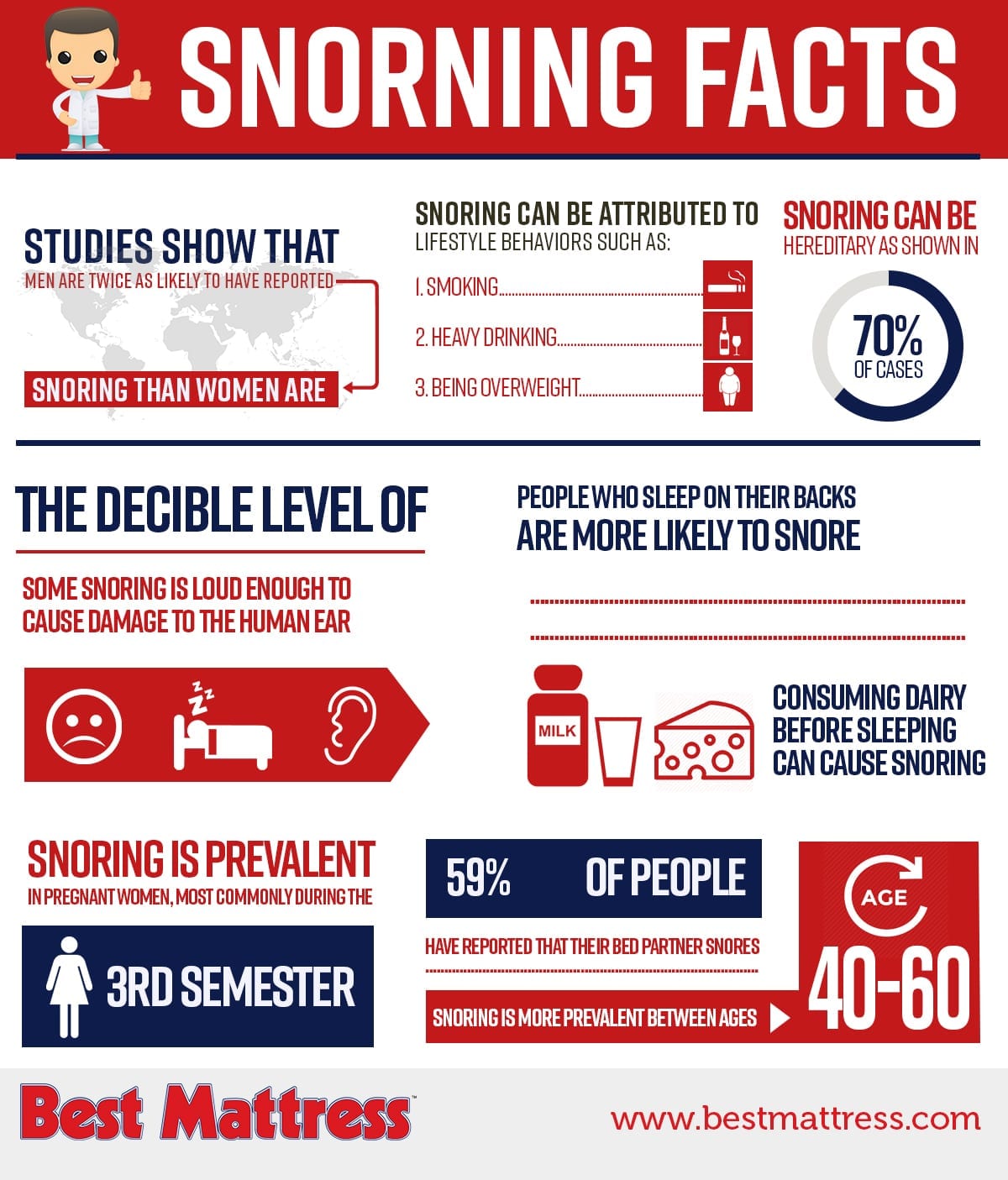
Snoring Facts
We’ve probably all had the experience of sleeping in the same room as someone who snores. You know how it is – worn out and drained from the day, you and your partner crawl into bed and turn off the lights. Whispered “Goodnight”s sound as you settle into the blankets. Then, as bad luck would have it, your partner falls asleep before you. Of this you are extremely aware, seeing as their rumbling snore seems enough to shake the bed, wake up the neighbors, and definitely rip you out of any dreamy state you might have been drifting into.
Who snores?

As the infographic shows, many, many people snore. Nearly everyone snores at least every now and then. According to a study, however, 59% of people reported that their bed partner snores regularly. Sometimes snoring can be indicative of certain respiratory disorders, but most often it’s nothing to worry about – just a bodily phenomenon that occurs in some people. While predominantly men are the culprits of this practice, it can also occur in women, especially among pregnant women. Reports show that many pregnant women snore in their third trimester.
Even though in 70% of cases snoring is shown to be hereditary, other factors may inhibit or intensify this. For example, obese people are usually proven to be more prone to snoring, and it can also be caused by habits such as smoking and heavy drinking. Gulping down that cup of milk or serving yourself that delicious bowl of cereal before bed may contribute to your snoring as well since research shows that consuming dairy before bed can be a causal factor. In addition, if you go to sleep anytime between the ages of 40 and 60 (which we hope you do), you may be more likely to snore.
What causes snoring?
On its most basic level, snoring is the result of having your air passages restricted. When we fall asleep, the muscles in our throats and tongues tend to relax, and sometimes they relax so much that they fill up the spaces in our airways. This, in turn, causes those all-too-well-known vibrations from the throat and nose. In the worst of cases, snoring can become something called Obstructive Sleep Apnea and can correlate to sleep disruption, where you accidentally wake yourself up with your snoring. Understandably, this causes daytime sleepiness. Obstructive Sleep Apnea can also correlate to high blood pressure.
What can you do to reduce snoring?
As previously discussed, the consumption of certain foods can be the cause of snoring. Limiting yourself on these items may help you reduce snoring and help those around you sleep better. Also, losing weight tends to be a big factor in improving your ability to breathe easily as you sleep. Even though you might be more prone to snore as you age or when you get pregnant, there are other little things you can do as well. Since gravity pushing down on your uvula, tongue and soft palate can be what’s causing you to snore, you may find that sleeping on your side solves the problem.
Furthermore, the shape and density of your pillow may play a role in how you breathe when you sleep. Experiment with the height of your pillow to see if it yields better results. A Purple Pillow with Boosters or the Purple TwinCloud pillow is perfect for adjusting the height of your head. Lastly, raising your head and torso slightly can reduce snoring. An adjustable bed is ideal for people or partners that snore.
At Best Mattress we have certain beds and products that aid with snoring and other similar struggles, and in this respect we can be more than just a Las Vegas mattress store for you – we can consult with you to find long-term, lasting solutions. We’re here to help! Come in any time and one of our team members will be happy to direct you to the nearest solution.
